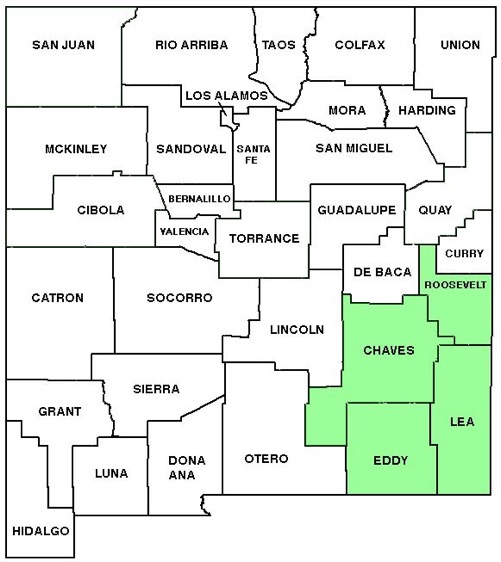WILDFLOWERS OF NEW MEXICO
With a hemispherical stem 12-inches tall and wide and usually almost buried, this small barrel cactus is viciously armed with rigid spines. Note the spike-like central spine and the stem with 13–27 prominent ribs with narrow (not rounded) crests, and short wool on the apex.
FLOWER: April, May. Delicate, rosy-pink to salmon-colored flowers, 2–2 3/8-inches wide (5–6 cm), circle the apex and close by early afternoon; filaments pinkish, anthers yellowish, stigma lobes white to pinkish. Clusters of bright red, fleshy, egg-shaped fruit, 5/8-2-inches in diameter, crowd the apex, and are not covered with wool.
SPINES: Each areole has a single rigid, erect central spine and 6–7 spreading radial spines. Most spines are curved, flat to round, and cross-robbed with rings. Pity the animal, or hiker, that steps on the 1 1/2–2 1/2-inch long (3.8–6.3 cmm) central spine. Spines don’t hide the stem.
HABITAT: Arid sandy, limestone soils; desert grasslands and scrub.
ELEVATION: 3,000–4,300 feet.
RANGE: NM, OK, TX.
SIMILAR SPECIES: Devil’s Head Cactus, E. horizonthalonius, in the same range, has 8 broadly-rounded ribs and fruit hidden by long, woolly tufts at maturity.
NM COUNTIES: Southeast quarter of NM in low-elevation, arid habitats: Chaves, Eddy Lea, Roosevelt.

HORSE CRIPPLER CACTUS
ECHINOCACTUS TEXENSIS
Cactus Family, Cactaceae
Perennial cactus



THE CONTENTS OF THIS WEBSITE ARE COPYRIGHTED AND CANNOT BE USED
WITHOUT PERMISSION OF GEORGE OXFORD MILLER


Range Map for
Echinocactus texensis
Stem has 13–27 ribs with narrow crests.

Short wool on apex does not cover red fruit.
EMAIL ME